You are here
New Releases
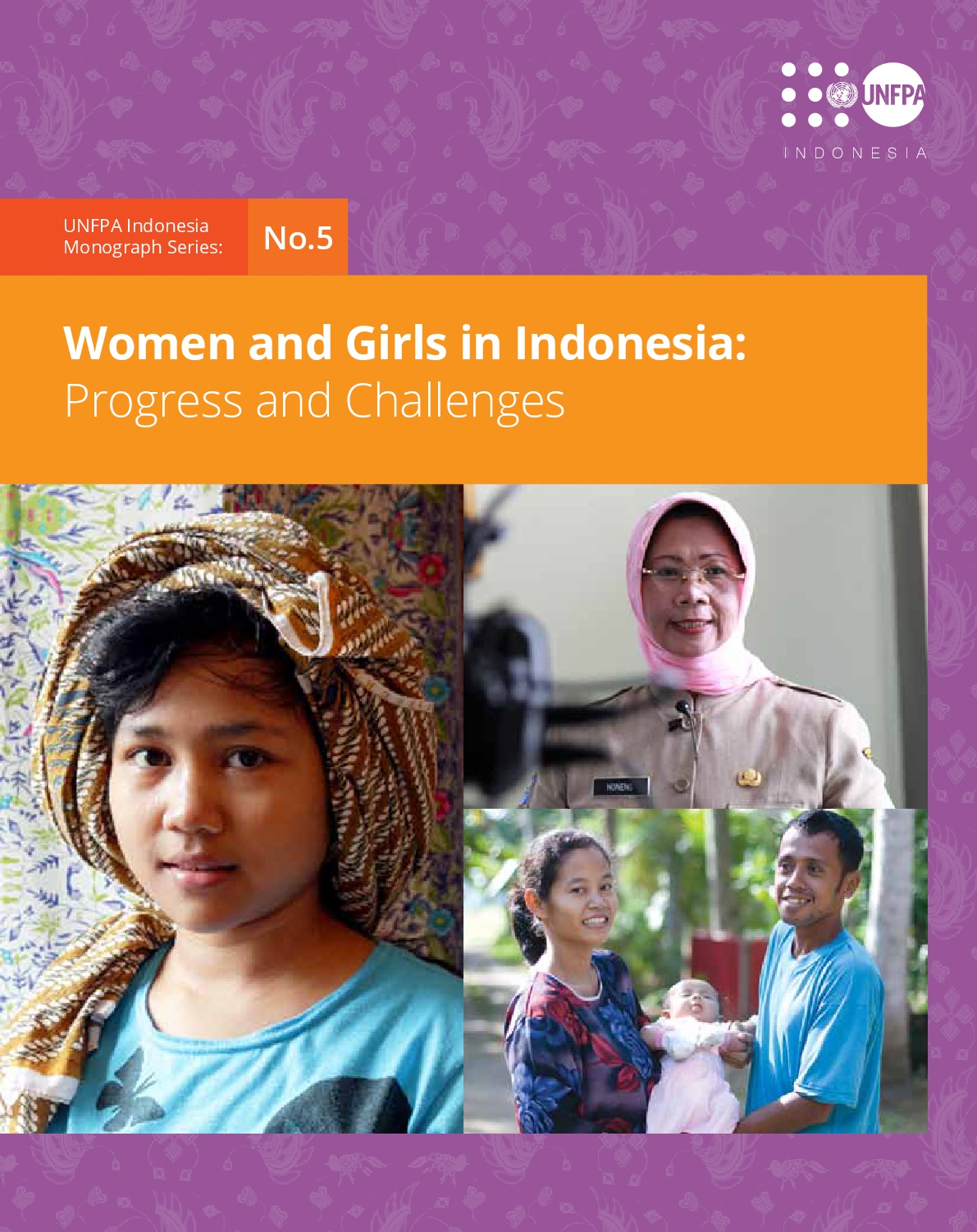
The Monograph Series No. 5: Women and Girls in Indonesia
The Gender monograph is the fifth and final monograph in this series. It is comprised of five themes: the demographic characteristics of male and female population, education, employment, family formation, feminization of ageing, and housing. It provides policy makers, academicians, and practitioners with the most up to date information about gender related issues derived from analysis of the census and other relevant sources of data.
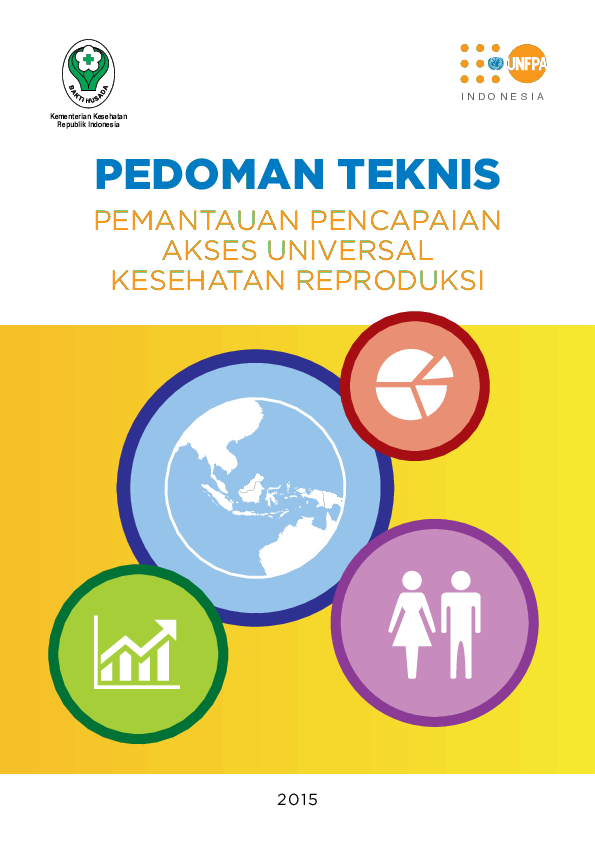
Pedoman Teknis Pemantauan Pencapaian Akses Universal Kesehatan Reproduksi
- To provide an explanation for each indicator of achievement of UATRH including its operational restrictions
- To provide a mechanism for provision of data/information for UATRH indicators by relevant stakeholders at the district/ city level and at the national level
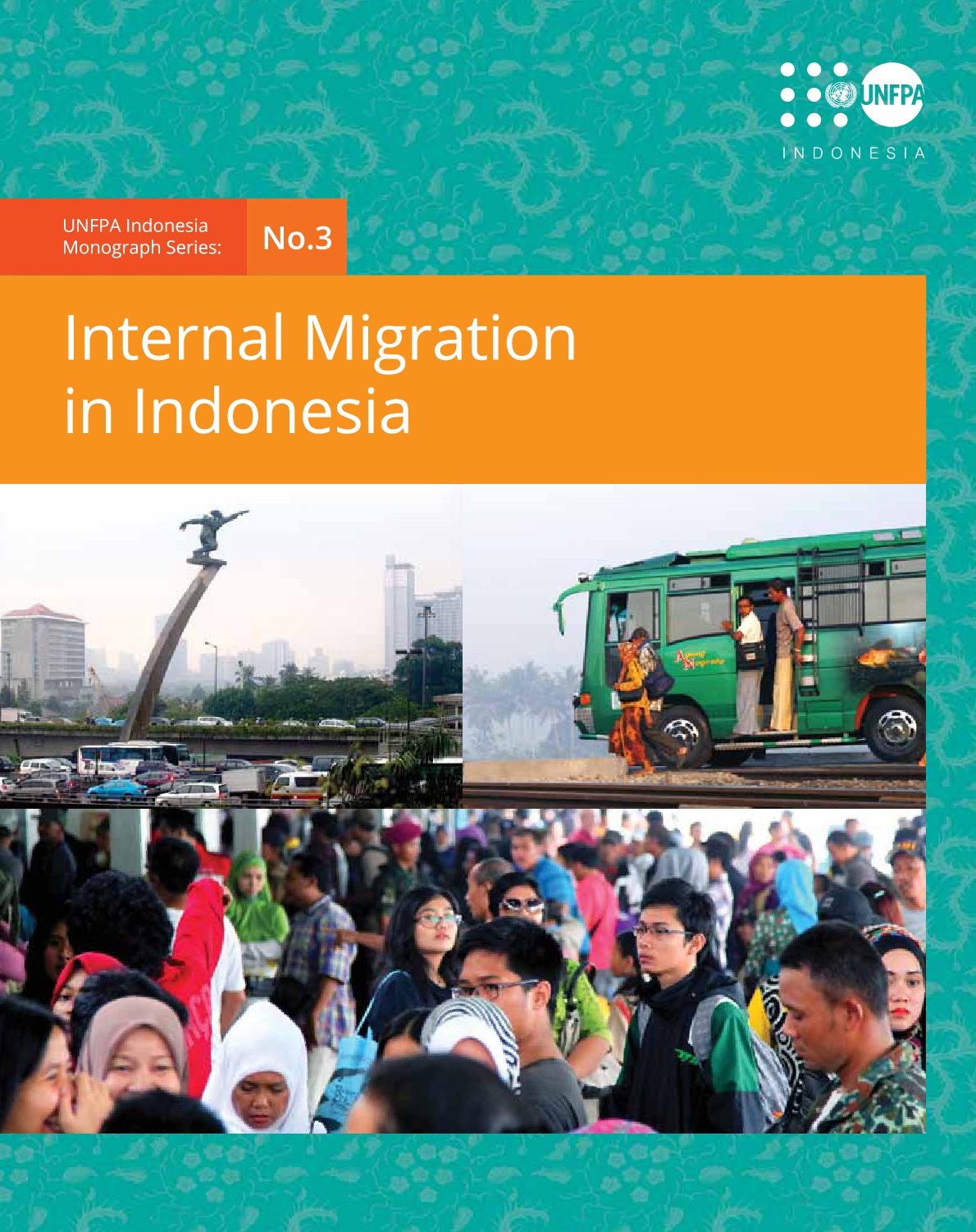
The Monograph Series No. 3: Internal Migration in Indonesia
The monograph on “Internal Migration in Indonesia” is part of UNFPA’s support provided to the Government of Indonesia to make use of the data from the 2010 Population Census and other authoritative official statistics.
It provides policymakers, academicians, and practitioners with current information about Indonesia’s migration patterns and the social and economic implications. The monograph also provides recommendations for development policies that pay more attention to current migration patterns in Indonesia to make sure migration and urbanization contribute in the best way possible to growth and socio-economic development in Indonesia.
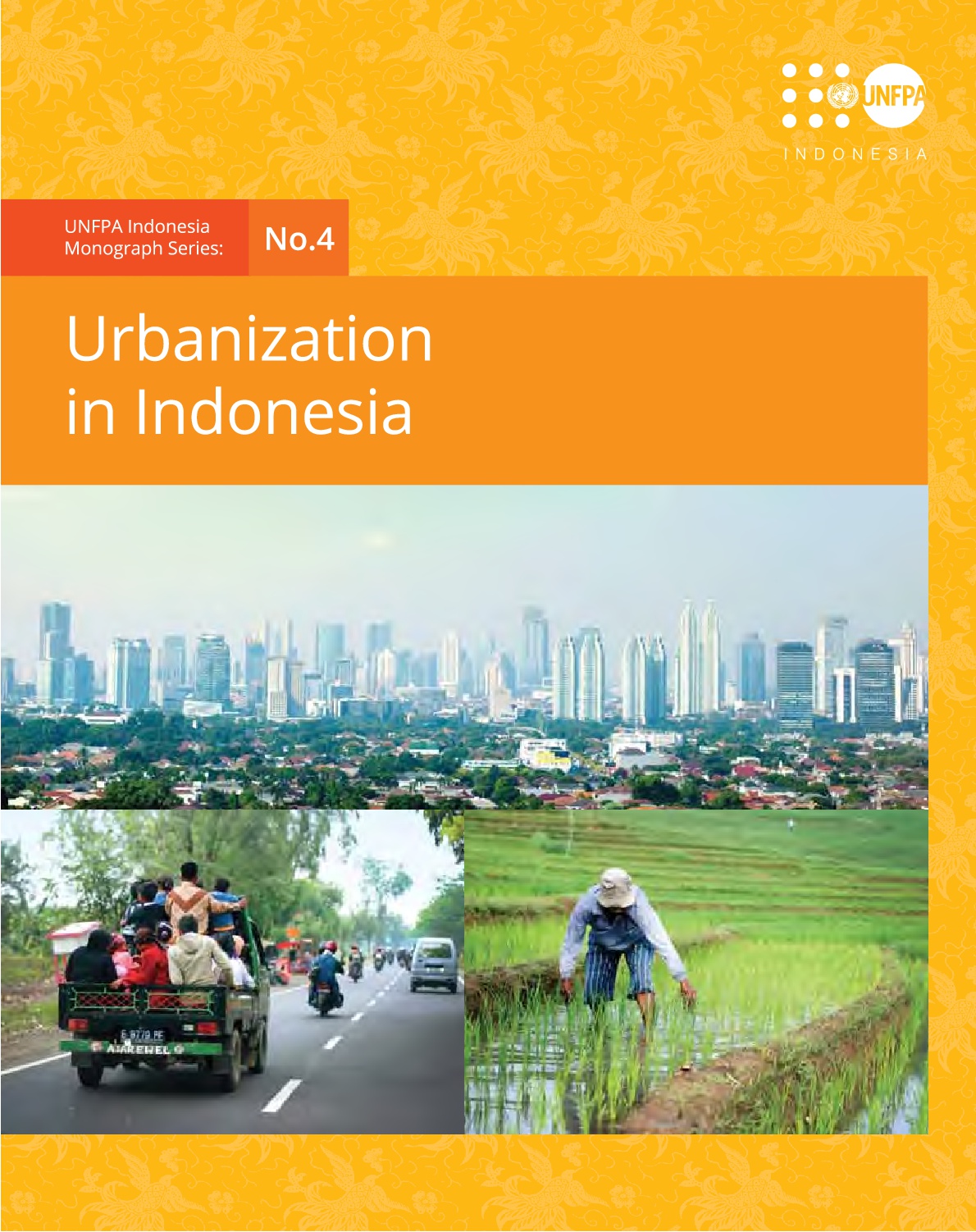
The Monograph Series No. 4: Urbanization in Indonesia
The monograph on “Urbanization in Indonesia” is the fourth in the series and was written by Prof. Gavin W. Jones and Mr. Wahyu Mulyana. It makes extensive use of data from the 2010 Population Census and other authoritative official statistics in order to provide policy makers, academicians, and practitioners with the most up-to-date information about Indonesia’s urbanization situation.
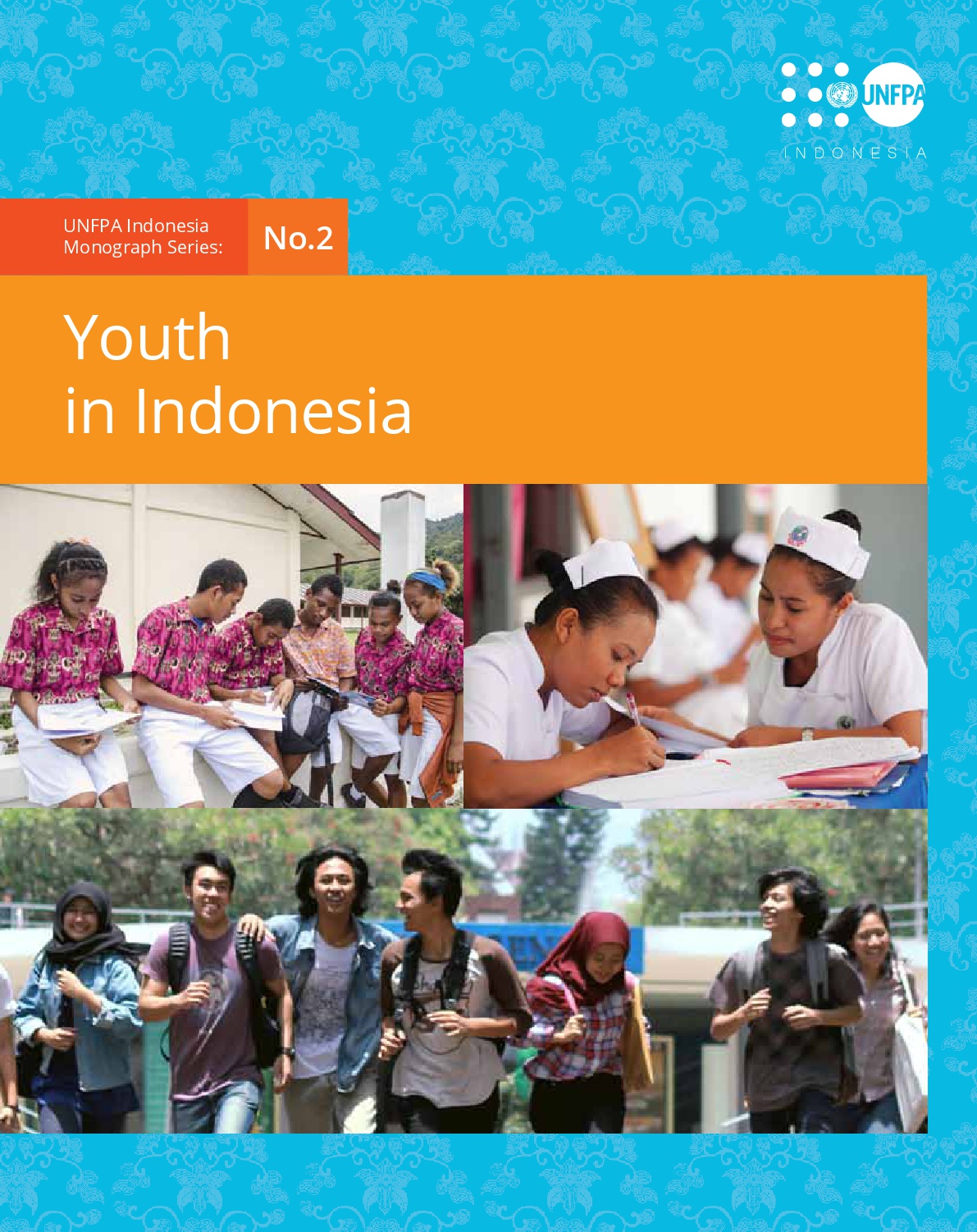
The Monograph Series No. 2: Youth in Indonesia
Indonesia’s youth have the potential to contribute to an increasingly prosperous future for Indonesia and to make an impact on the world stage. Investing in youth education, health and wellbeing is an important focus for national development and this Youth in Indonesia monograph provides data and evidence about the situation of youth that will be used for the development of a National Youth Strategy in Indonesia.
This monograph aims to contribute to informed discussion and debate about some of the key areas in which youth-related policies are likely to be reviewed. It also provides a contemporary profile of the circumstances of youth in Indonesia today and how their circumstances have been changing over time.
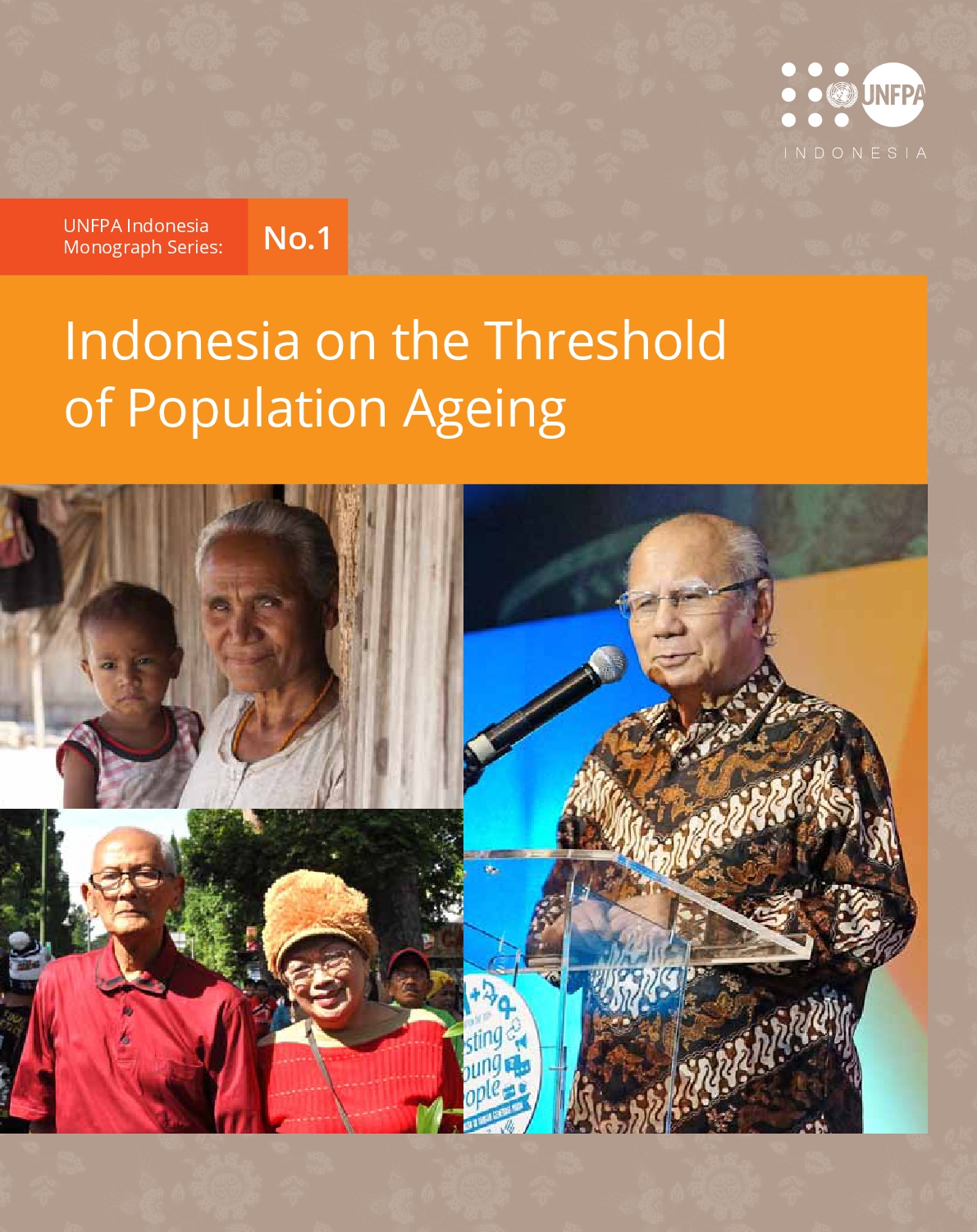
Monograph Series No. 1: Indonesia on the Threshold of Population Ageing
In the early 1970s, Indonesian women had an average of 5 to 6 children. Recognizing high fertility as major factor contributing to widespread poverty, the government launched a comprehensive family planning programme to bring it down. The programme came to be rated as one of the most successful in the World. Indonesia being a predominantly Muslim country made the success of the family planning all the more spectacular. The Indonesian experience was used as an example of how proponents of family planning could engage and work with orthodox religious groups.
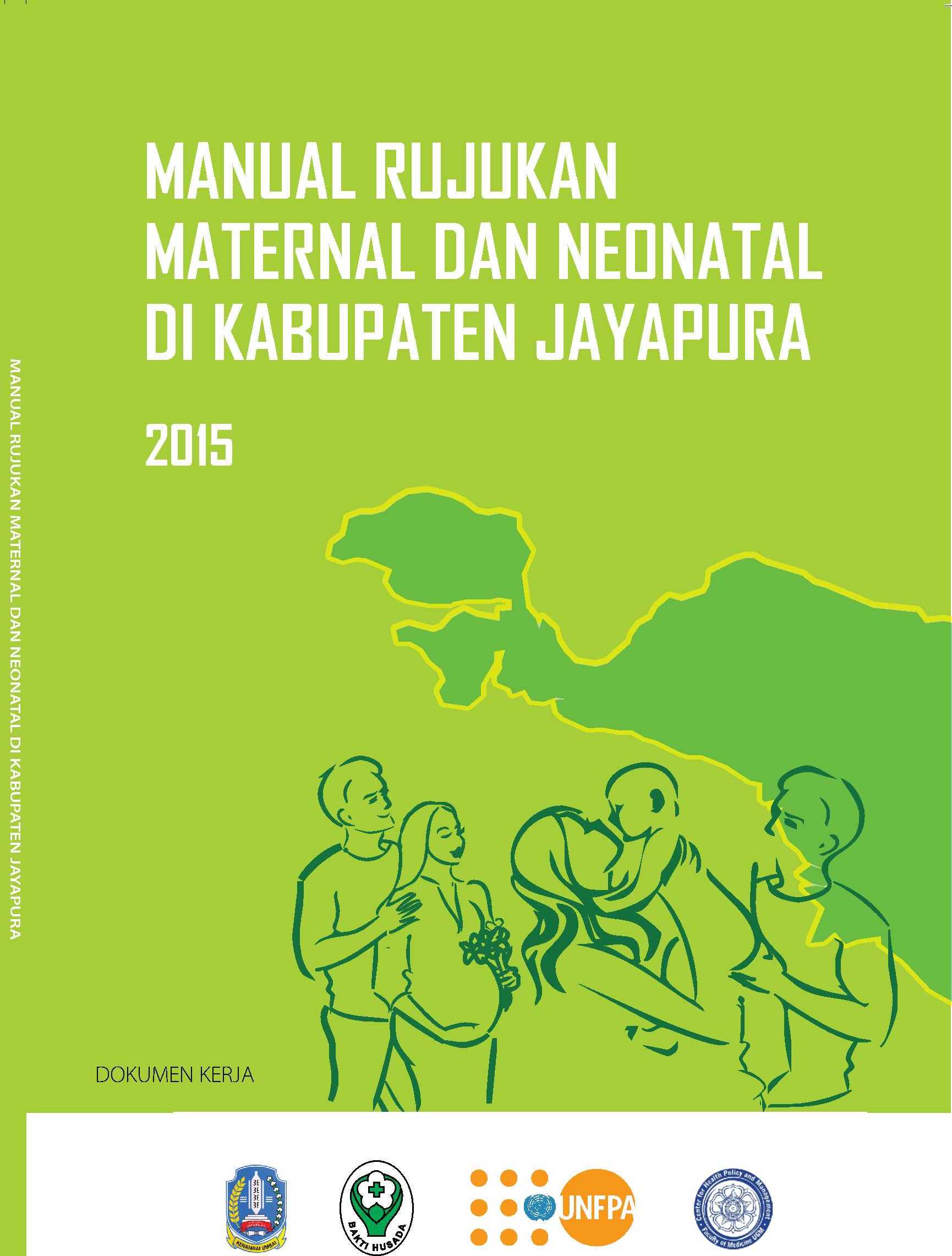
Manual Rujukan Maternal dan Neonatal di Kabupaten Jayapura
Youth Booklet II - Realizing Young People’s Potential in Indonesia: The Path to a Brighter Future
With early understanding and care towards theenvironment, a collaboration of children and youth,engaging actively in environmental activities and having aninherent safeguarding value on environmental concerns,could potentially become a turning point against the globalenvironment problem,” says Adeline, who believes that theyouth of today holds the key in solving the climate crisis.Her first environmental envoy involved planting mangrovesin a nearby swamp, and more than 100 kids from threedifferent schools all took part voluntarily.
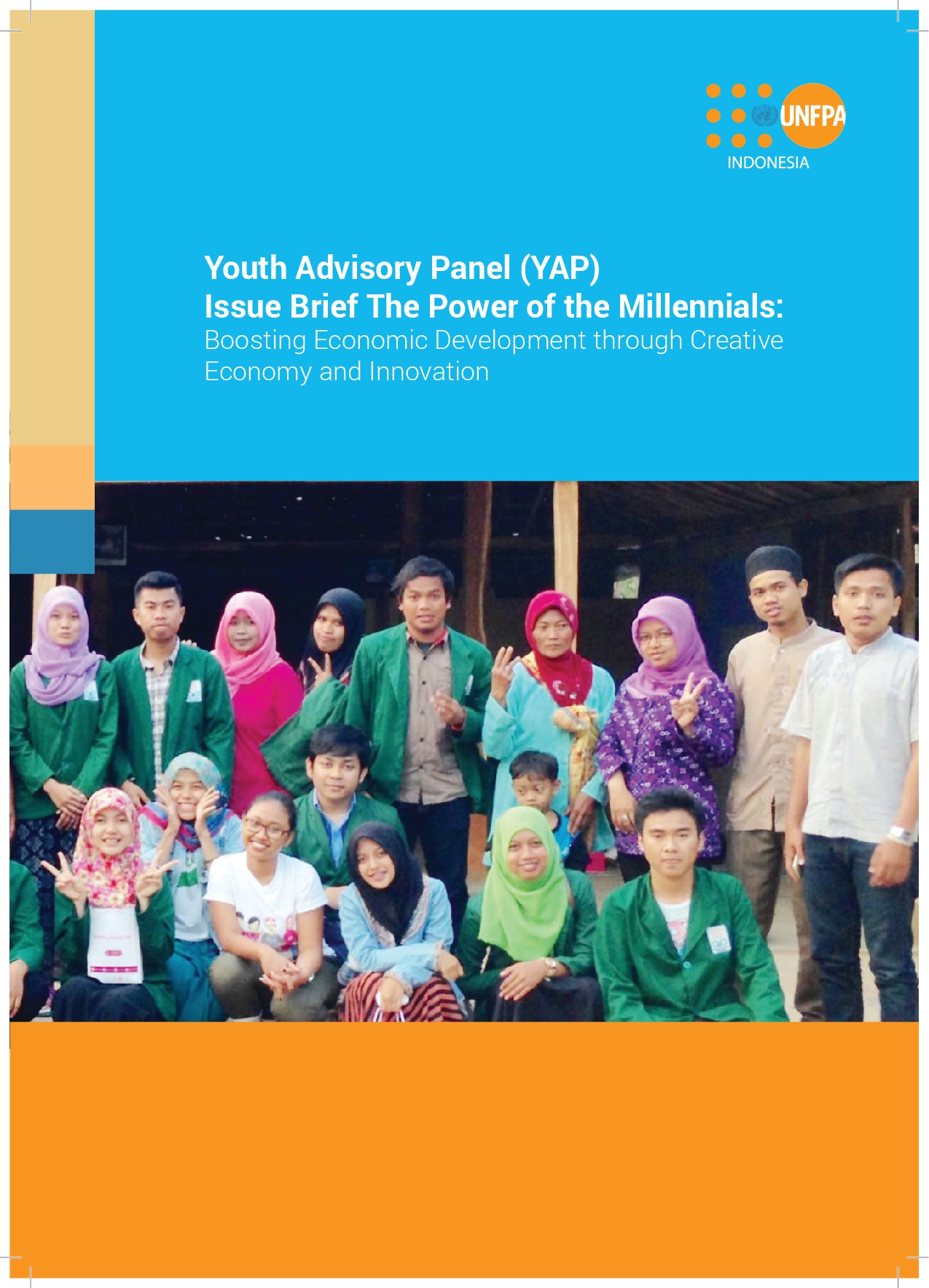
Youth Advisory Panel (YAP) Issue Brief The Power of the Millennials: Boosting Economic Development through Creative Economy and Innovation
This issue brief summarizes key priorities and facts on youth and economic development within Indonesia’s context, and connects these facts with the new trends towards creative economy and innovation. The issue brief uses youth-related studies, publications, lessons learned, and findings conducted by different stakeholders, including UNFPA and partner agencies. It is developed by the UNFPA Youth Advisory Panel, a group of young people under the age of 24 who advocate for the involvement of young people in UNFPA’s mandates and programmes.
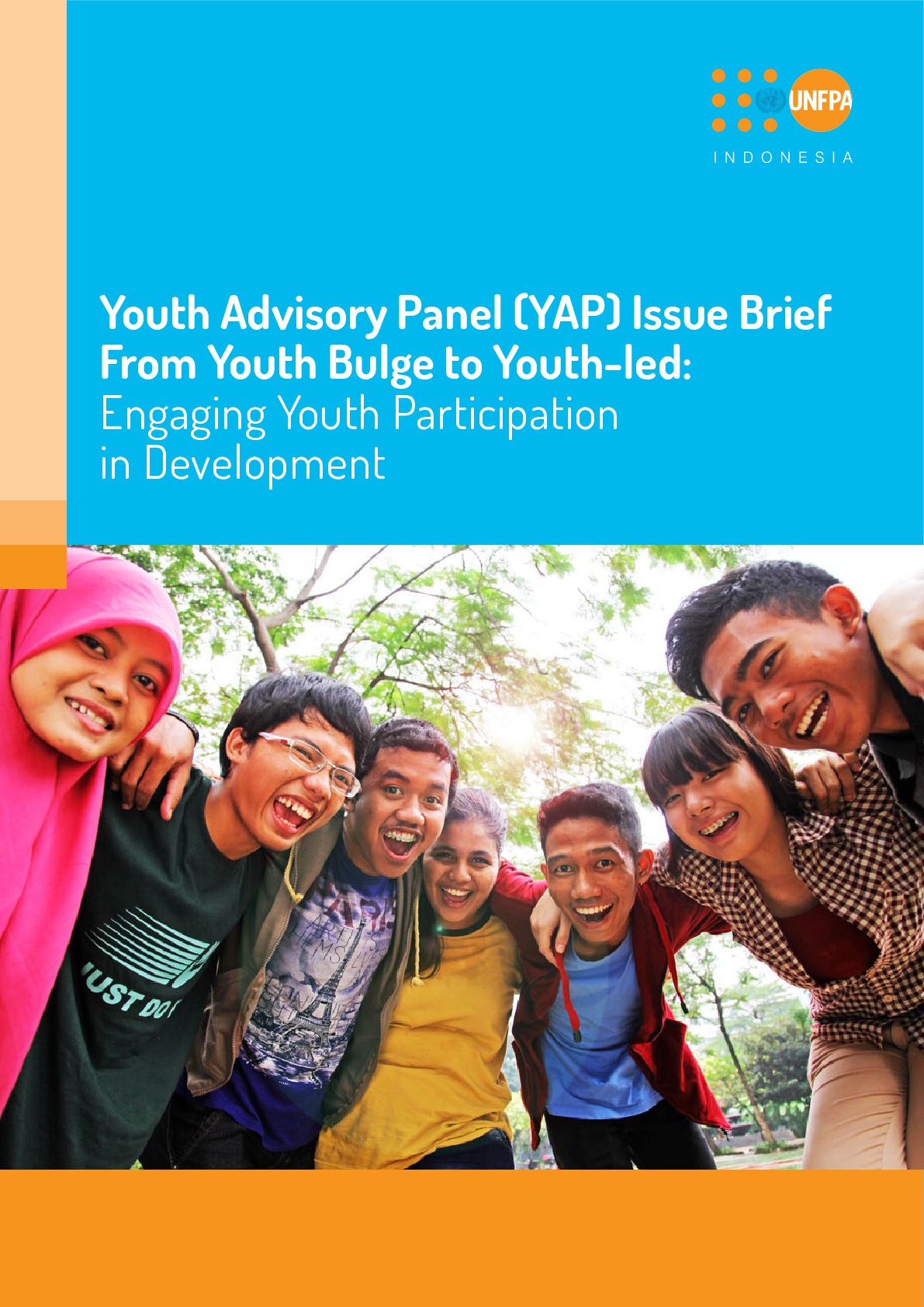
Youth Advisory Panel (YAP) Issue Brief From Youth Bulge to Youth-led: Engaging Youth Participation in Development
This issue brief summaries key priorities and facts on youth participation in development within Indonesia’s context. The issue brief uses youth-related studies, publications, lessons learned, and findings conducted by different stakeholders, including UNFPA and partner agencies. This issue brief was developed by young people under age of 24 to sound their voice on how young people should be involved as co-authors and co-producers of future development.